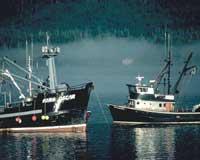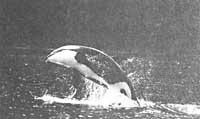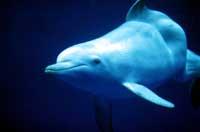A hard life at sea. Behavioral changes by human influence
2004/05/30 Lexartza Artza, Irantzu - Elhuyar Zientziaren Komunikazioa

Orcas try to face a new challenge in the coastal waters of the western United States. They live in an increasingly noisy environment and have had to adapt to this situation.
Researchers studying orcas have observed a significant change in the sounds produced by these animals. An investigation has compared the recordings of the cries from the 1970s to the present, and has seen how since 1990 these cries have elongated a lot. In addition, the longest cries occur when there are boats around them.
Scientists have long claimed that orcas use sound to guide and communicate. Years ago it was also discovered that the noise produced by humans could limit the ability of cetaceans to find the way. Interference from other sound waves can cause loss and drift. They have now discovered that noise pollution also affects communication.
Orcas live in groups and communication plays an important role in their lives. They say that they can emit more than sixty different sounds, and that groups living in the same region also use their own accent or dialect.
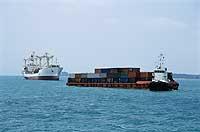
For each situation they use a certain type of signal and there are sounds that cause certain behaviors in the group. They have a good communication system, but their level or complexity is still not well understood.
Some groups of orcas often shout to maintain an audible distance, especially during hunting. However, when prisoners are able to hear these sounds, they remain silent until the time of attack. Scientists believe that even when there is any danger they warn their members with shouts.
But subaquatic noise pollution, almost imperceptible to human hearing, has hindered the performance of these functions and has further stressed the declining population.
Numerous merchant boat routes pass around the orcas. In addition, between 1990 and 2000, the number of boats that will observe the orcas has multiplied by five. Many of them are not under control and often fail to meet minimum standards for minimal alteration of animals. On the other hand, to the hum of the engines must be added the strong sonars of the American army.

Thus, orcas have trouble hearing calls from each other and biologists believe that making them longer can be a mechanism they have developed to ensure communication. The current noise level is considered to have overcome a critical barrier that forces cetaceans to develop this adaptation.
Humans, when there is a lot of noise, cry out or repeat words. Their longer cries may be similar to repetition. They may have more chances of sounding between the sounds of the engines making longer screams.
They still do not know the success of this adaptation, but it can be worrying if they fail to maintain communication, as it can seriously influence their lifestyle. For example, hunting may lose effectiveness.
Humans have invaded the seas, often causing damage to the species that inhabit them. Moreover, it is these other living beings that have to adapt to our lives to survive. As they have altered their behavior against noise, pollution and fishing of dams have caused a decrease in their population.
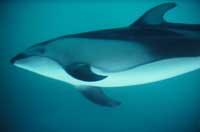
Other populations of living seafarers have been aggravated by their incidence. Some species have disappeared and many others are in danger of extinction. The latter is the case of cod.
The decline in the population that was forced to ban the fishing of this fish was such. Cod had to adapt to the harsh new situation and researchers have found that sexual maturity comes earlier than before. According to them, it is an evolutionary adaptation to be able to abandon the descendants.
Changes in animals have caused concern among scientists and nature protection associations. However, change in human life is the only way to deal with such situations.
Published in 7K.

Gai honi buruzko eduki gehiago
Elhuyarrek garatutako teknologia




